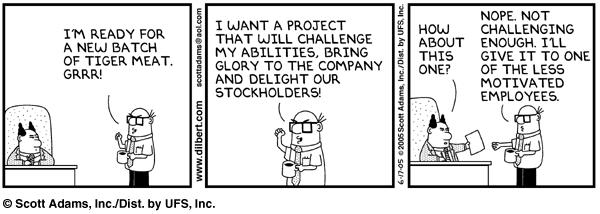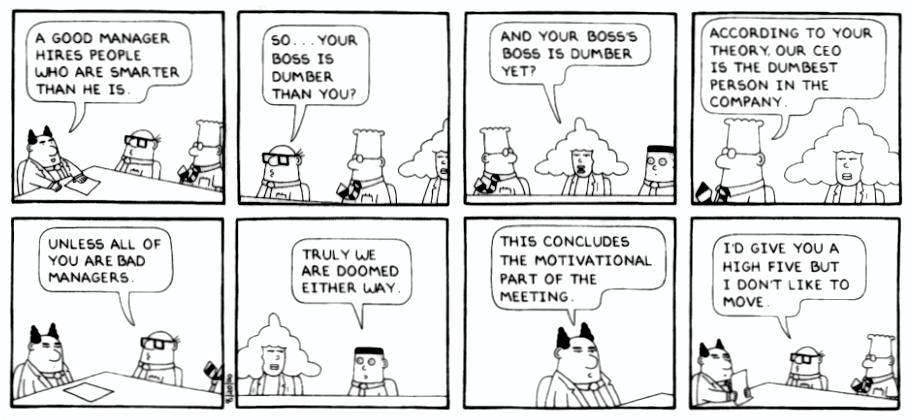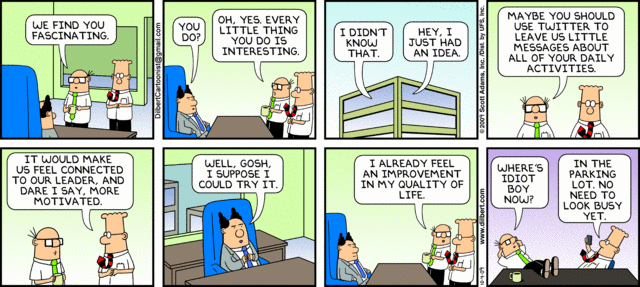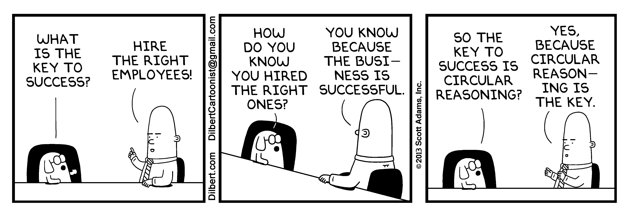Here Are The 7 Things That Can Make You Wildly Successful
at does volumes of research say you can learn from wildly successful people? To Build A Better Career, First Build A Better You It might sound fluffy but research shows how people feel about themselves has a huge effect on success. Via The 100 Simple Secrets of Successful People: For most people studied, the first step toward improving their job performance had nothing to do with the job itself but instead with improving how they felt about themselves. In fact, for eight…
7 minutes
9 Steps To New Year’s Resolutions That Last Longer Than New Year’s Day
is year I resolve to... Hold on a second. Let's not join the lemmings who screw this up every year. 88% of people fail to achieve their New Year's Resolutions. There is a ton of science on this subject so if we want to do New Year's Resolutions, let's do them right. First, Stop Fantasizing Do fantasies give you the energy to achieve your goals? Nope. Fantasies steal the energy you need to achieve your goals: Positive fantasies allow people to mentally…
5 minutes
5 Expert Ways To Deal With Difficult People — And Make Them Love You
ve posted a great deal on working with difficult people and how to make people like you. What new research and expert advice can we use to better deal with difficult people? The Feedback Sandwich Doesn't Work -- This Does Nobody likes delivering bad news. Stanford's Jeffrey Pfeffer recommends having someone else do it whenever possible. But what about when it's unavoidable? Don't do the old "feedback sandwich" of positive comment, negative comment, positive comment. Research shows it's better to be…
5 minutes
The Five Paths To Being The Best At Anything
��ve posted a lot about becoming the best in your field. Looking back, what are the most successful methods for getting there? 10,000 Hours Let's get the most famous one out of the way first: Hard work pays off. Malcolm Gladwell popularized the theory in Outliers: approximately 10,000 hours of deliberate practice at something can turn you into an expert. Via Ungifted: Intelligence Redefined: ...the most elite violinists accumulated about the same number of hours of deliberate practice (about 7,410 hours) by…
6 minutes
The Top 7 Management Tips From Harvard Business Review
rvard Business Review recently released a book of their top Management Tips. Here are the ones I felt were the most insightful and actionable. Get Through Your To-Do List Via Management Tips From Harvard Business Review: Self-discipline is hard. Try these three tips to make your work more efficient every day: Get three things done before noon. Statistics show that the team ahead at halftime is more likely to win the game. Enjoy your lunch knowing that you accomplished at least three tasks…
4 minutes
10 Things The Greatest Leaders All Have In Common
bsp; Know The Power Of Feelings Leaders who just focus on results don't do nearly as well as those that also pay attention to relationships. Via Social: Why Our Brains Are Wired to Connect: Zenger found that if employees rated a manager as very high on "focus on results" (that is, one's ability to get things done effectively), there was only a small (14 percent) chance that the manager would be rated among the top 10 percent of leaders overall. However,…
6 minutes
What Do Successful People Have In Common? 8 Things.
sy Busy Daily Rituals: How Artists Work, examines the work habits of over 150 of the greatest writers, artists and scientists. What did they all have in common? A relentless pace of work. Via Daily Rituals: How Artists Work “Sooner or later,” Pritchett writes, “the great men turn out to be all alike. They never stop working. They never lose a minute. It is very depressing.” What did Stanford professor Jeffrey Pfeffer find when he looked at high achievers like LBJ and Robert Moses? 60-65…
6 minutes
4 Easy Ways You Can Resolve Life’s Toughest Questions
w To Work More Efficiently Use the Eisenhower Matrix. Via The Decision Book: 50 Models for Strategic Thinking: The US President Dwight D. Eisenhower supposedly once said: ‘The most urgent decisions are rarely the most important ones’. Eisenhower was considered a master of time management, i.e. he had the ability to do everything as and when it needed to be done. With the Eisenhower method, you will learn to distinguish between what is important and what is urgent. Whatever the job…
3 minutes








